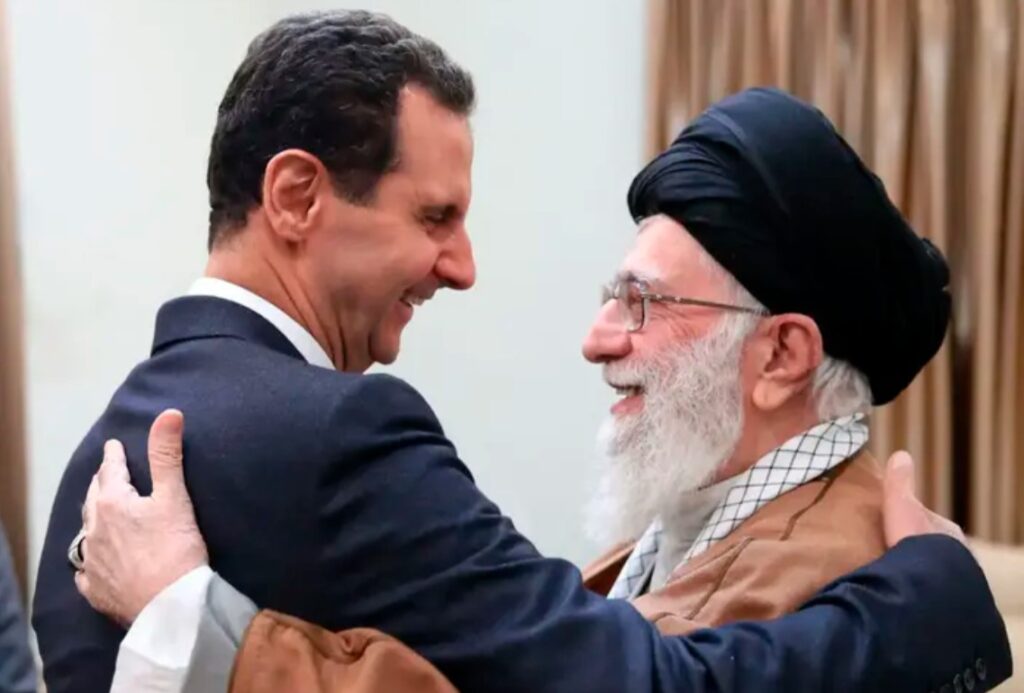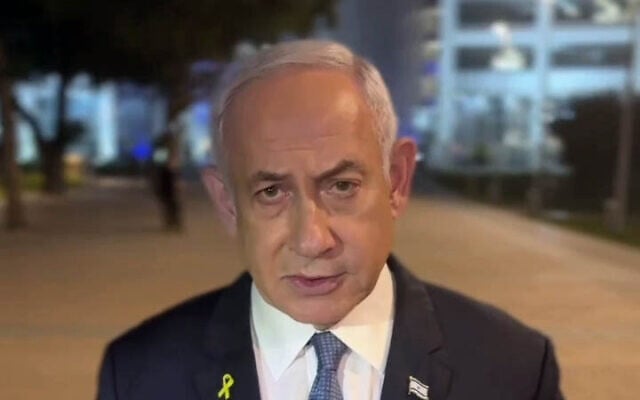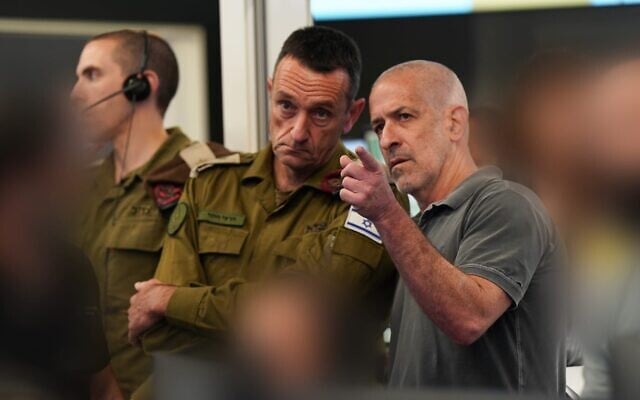|
Advert |
 |
|
|
| World News |
| Collapse of Assad’s Regime has sent shockwaves through the Iranian regime as the IRGC argue internally as to who is to blame |
 |
|
Iran’s armed forces are caught in a spectacular blame game following the dramatic downfall of Syrian President Bashar Al-Assad, according to sources who spoke to The Telegraph. The collapse of Assad’s regime, once a cornerstone of Iran’s regional influence, has triggered an unprecedented meltdown within the Islamic Revolutionary Guard Corps (IRGC), with commanders trading furious accusations over the catastrophic loss. “The atmosphere is like something out of a bad comedy,” an official in Tehran revealed. “They’re yelling at each other, punching walls, and kicking rubbish bins. Everyone is blaming everyone else, and no one wants to admit fault.” The unraveling of Iran’s decade-long effort to prop up Assad has sent shockwaves through the regime. For over ten years, Iran funneled billions into maintaining its grip on Syria, not out of loyalty to Assad, but to secure a critical foothold near Israel and a supply route to Hezbollah in southern Lebanon. That strategy has now crumbled, leaving Iran’s leadership scrambling for answers. “No one ever imagined Assad fleeing,” the official admitted. “The entire focus was on keeping him in power—losing Syria was simply unthinkable.” The fallout has cast a harsh spotlight on Brig. Gen. Esmail Qaani, the IRGC Quds Force commander, whose leadership is being openly questioned. While no one dares to confront him directly, whispers of accountability and calls for his dismissal are growing louder. Iran’s Supreme Leader Ayatollah Ali Khamenei is reportedly furious, summoning IRGC commanders repeatedly and preparing to address the nation on what insiders are calling an “unprecedented regional debacle.” Meanwhile, behind closed doors, the IRGC remains in disarray, paralyzed by infighting and uncertainty over how to salvage its regional ambitions. Adding to the chaos is the loss of Syria as a key supply line for Hezbollah. “We’re at an impasse,” admitted another IRGC official. “There’s no discussion of arms shipments anymore—right now, it’s about survival and figuring out what’s next.” For a regime accustomed to projecting dominance, the fallout from Assad’s downfall is a bitter and highly public humiliation. As Iranian officials grapple with the scale of their failure, the question remains whether this crisis will lead to meaningful changes or further entrench the regime’s dysfunction. |
|
|
| Israel News |
| PM: Israel wants ‘correct’ ties with new Syrian regime, but will attack if necessary |
 |
| Prime Minister Benjamin Netanyahu speaks in a video message on December 10, 2024. (Screenshot) |
|
In a message to the new regime taking shape in Syria, Prime Minister Benjamin Netanyahu said on Tuesday that Israel wants to establish relations, but won’t hesitate to attack if it threatens the Jewish state. “We have no intention of interfering in the internal affairs of Syria,” he said in a video statement, “but we certainly do intend to do what is necessary to ensure our security.” Therefore, he said, the Israeli Air Force was bombing “military strategic capabilities” left by the Syrian military of the ousted Assad regime, “so that they won’t fall into the hands of the jihadists.” “We want correct relations with the new regime in Syria,” he went on. “But if this regime allows Iran to reestablish itself in Syria, or allows the transfer of Iranian weapons or any other weapons to Hezbollah, or attacks us, we will respond forcefully and we will exact a heavy price from it.” “What happened to the previous regime will also happen to this regime,” he warned. Netanyahu compared the widespread air force bombing campaign of Syria’s strategic military capabilities this week to the 1940 Royal Navy bombing of the French fleet at Mers-el-Kébir in Algeria to keep it from falling into the hands of the Nazis. Netanyahu mistakenly attributed the operation to the Royal Air Force. The Israeli operations in Syria came in the wake of a lightning offensive by rebel forces there, which on Sunday toppled the regime of Bashar al-Assad in a dramatic two-week chapter of a civil war that began in 2011, and which had been locked in a stalemate for years. The Assad regime was an ally of the Islamic Republic of Iran, and a part of the latter’s so-called Axis of Resistance against Israel. For years, Syria was used as a thruway for Iranian weapons, en route to terror groups including Lebanon’s Hezbollah, with which Israel entered a shaky ceasefire last month. Israel fears that following the collapse of the Assad regime, the former Syrian army’s weapons could fall into the hands of hostile forces in the country, as well as the Iran-backed Hezbollah. Defense Minister Israel Katz also issued a warning to Syria’s rebels, saying that any entity that poses a threat to Israel will be targeted relentlessly. “The IDF has acted in the last few days to attack and destroy strategic capabilities that threaten the State of Israel,” he said, during a tour of the Haifa naval base during which he was briefed on the Navy’s strikes on the Assad regime’s naval assets. He warned the rebels that “whoever follows Assad’s footsteps will end up like Assad did. We won’t allow an extremist Islamic terror entity to act against Israel from beyond its borders… we will do anything to remove the threat.” Katz reiterated the IDF is creating a demilitarized area and said he ordered a “sterile defensive zone” to be created in southern Syria, without a permanent Israeli presence, to prevent any terrorist threat to Israel. Following Assad’s fall, Israel moved to destroy regime weapons sites before they could fall into the hands of forces hostile to the country, amid the chaotic takeover by rebel groups, many of which were originally formally linked with al-Qaeda and other jihadist groups. Israel has said it will not become involved in the conflict in Syria and that its seizure of the buffer zone established in 1974 was a defensive move. Israel said its airstrikes would carry on for days, but told the UN Security Council that it was not intervening in Syria’s conflict. It added that it had taken “limited and temporary measures” solely to protect its security. Israel and Syria do not have diplomatic relations and have been in a perpetual state of war, albeit a relatively quiet one, since Israel declared independence in 1948. |
|
|
| Security chiefs discuss hostage deal in Cairo as Israel sees growing chances |
 |
|
Israeli security chiefs discussed efforts to reach a hostage release deal with senior officials in Cairo Tuesday, as Jerusalem assessed that the chances of Hamas seeking an agreement had increased. Shin Bet Director Ronen Bar and IDF Chief of Staff Lt. Gen. Herzi Halevi met senior Egyptian officials in Cairo, an Israeli official told The Times of Israel, confirming a report in the Walla news outlet. According to that report, the visit had been planned weeks ago primarily to discuss issues relating to the border between Egypt and Gaza. An official said attempts to reach an agreement with Hamas were also on the agenda, but that the terror group “still hasn’t given an answer on if it is willing to engage in negotiations.” While Hamas has remained mum on its intentions, a senior Israeli official said that changes have increased for a deal. “Two weeks ago I thought Hamas didn’t want a deal,” the official said, “Now I am inclined to think that it has changed its mind.” Saudi Al Hadath outlet reported that the terror group had passed along a list of living hostages to Egyptian mediators. Sunday saw sources within various Palestinian terror groups in Gaza say Hamas had told them to compile information on the hostages they hold, in preparation for a potential deal with Israel. Sounding optimistic about a deal, Netanyahu said Tuesday that the Gaza-based terror group is “more isolated than ever” after the fall of President Bashar al-Assad in Syria. “It hoped for a unifying of the fronts. Instead, it got a collapse of the fronts. It expected help from Hezbollah — we took that away. It expected help from Iran — we took that as well. It expected help from the Assad regime – well, that’s not going to happen now,” he said. “The isolation of Hamas opens another opening to making progress on a deal that will bring our hostages back,” he added, promising that he and the government are “leaving no stone unturned” in their effort to bring all the hostages home — “the living and the fallen.” White House National Security Council spokesperson John Kirby echoed the prime minister’s sentiments during a briefing with reporters Tuesday: “One would hope that recent developments in Syria reinforce for [Hamas] that they are just increasingly isolated and ought to take a deal… They can’t rely on Hezbollah, they certainly can’t rely on Iran.” |
|
|
|
|
|
|
To advertise click here or [email protected]:
|
|
The email was sent to [email protected] |












